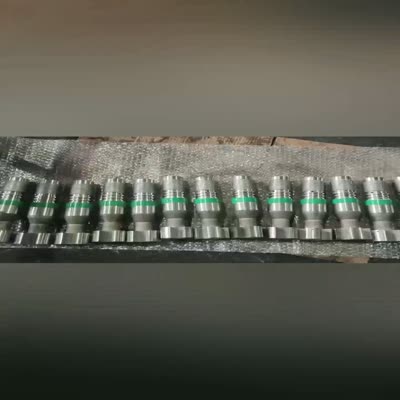Hydraulic Fracturing 7" Heavy Wall Casing Thread Protectors OEM
- Loading Port:
- Tianjin
- Payment Terms:
- TT OR LC
- Min Order Qty:
- 1 m.t.
- Supply Capability:
- 1400 m.t./month
OKorder Service Pledge
OKorder Financial Service
You Might Also Like
Specification
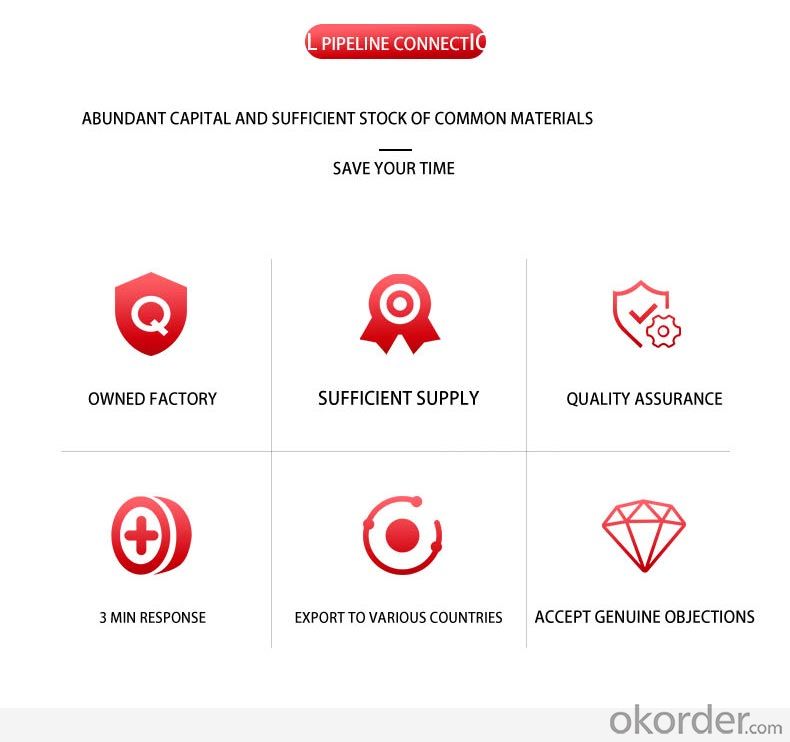
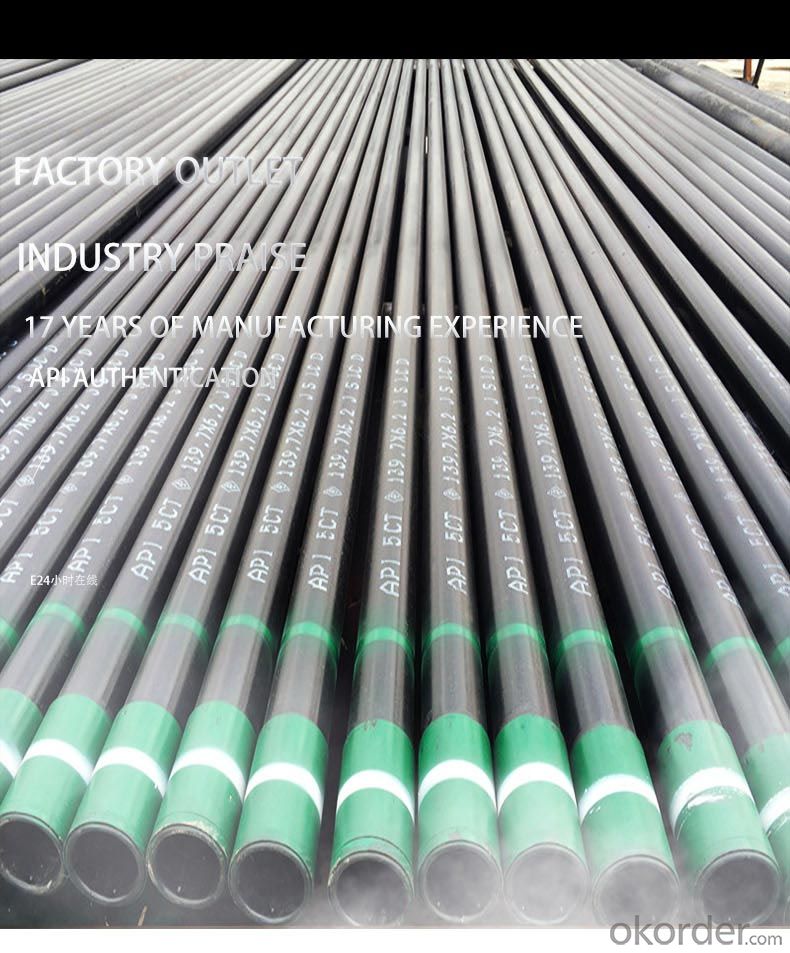
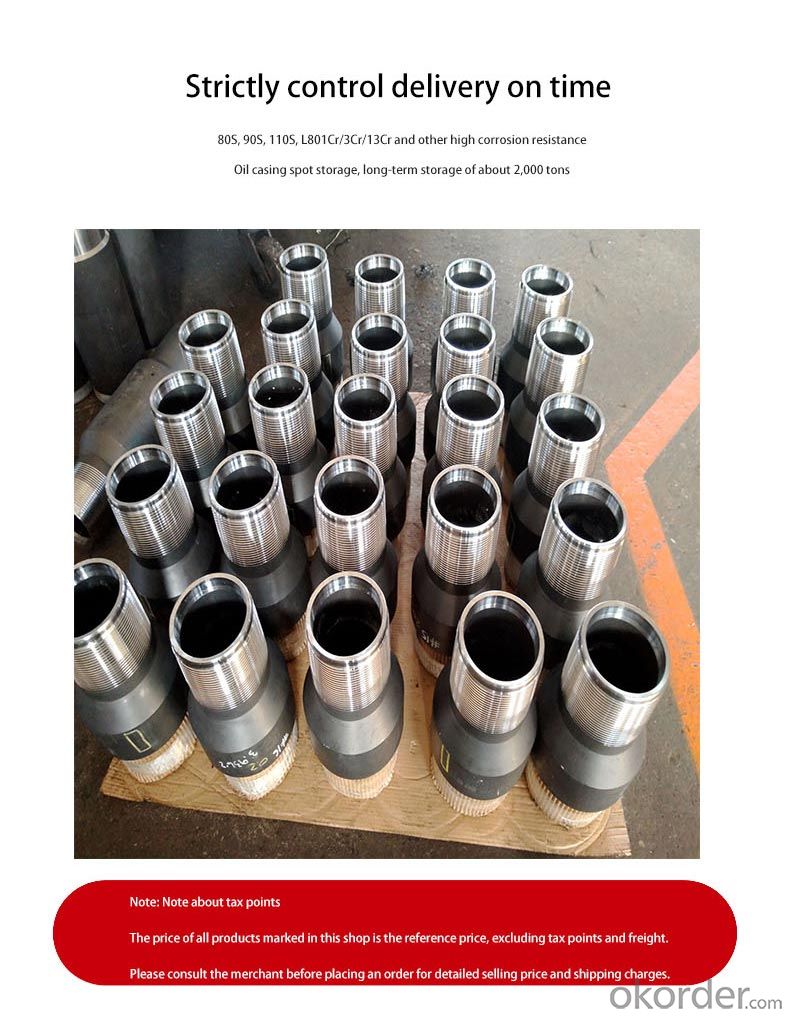
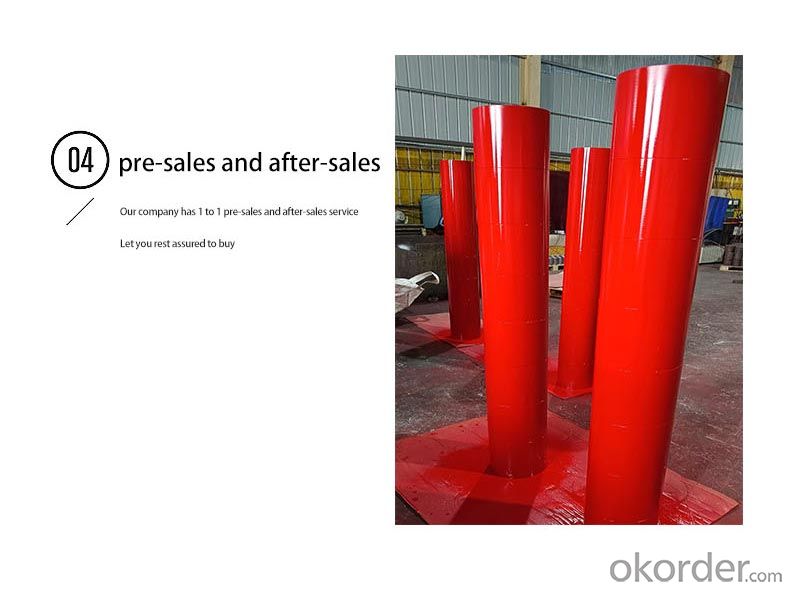
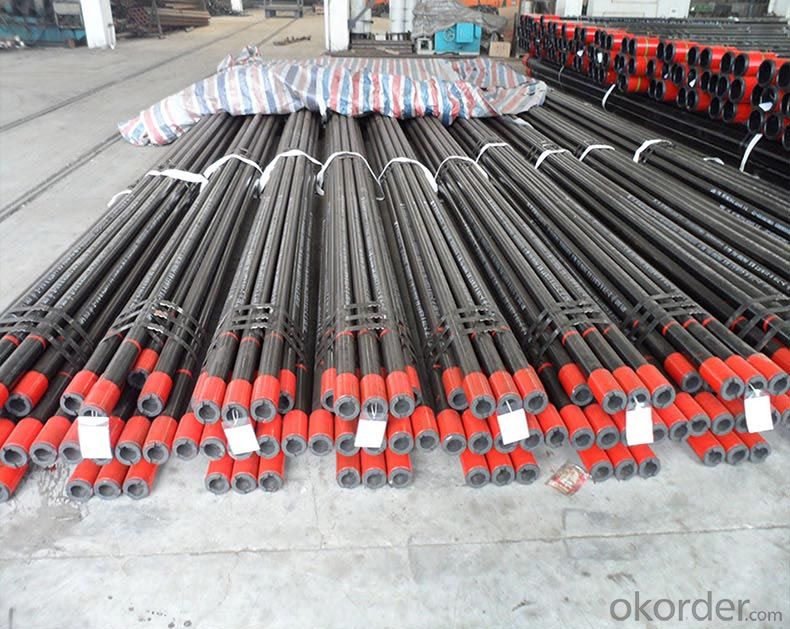
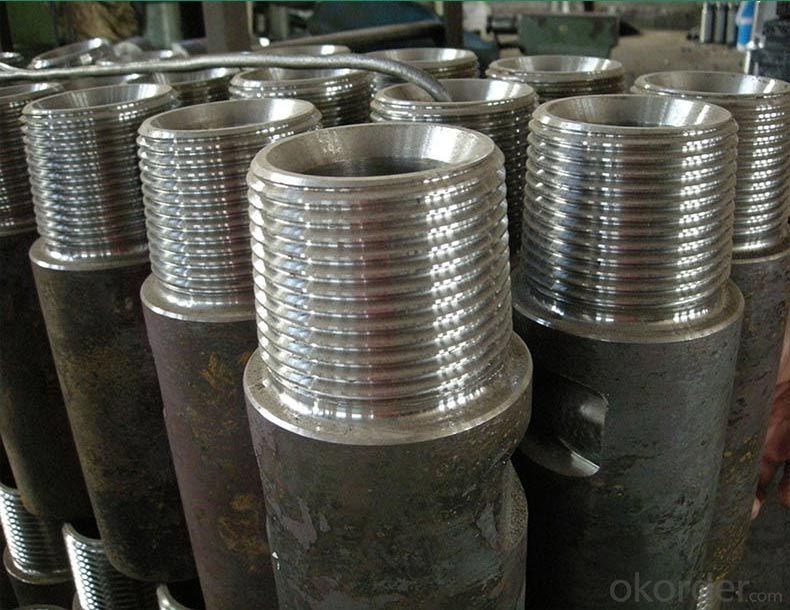
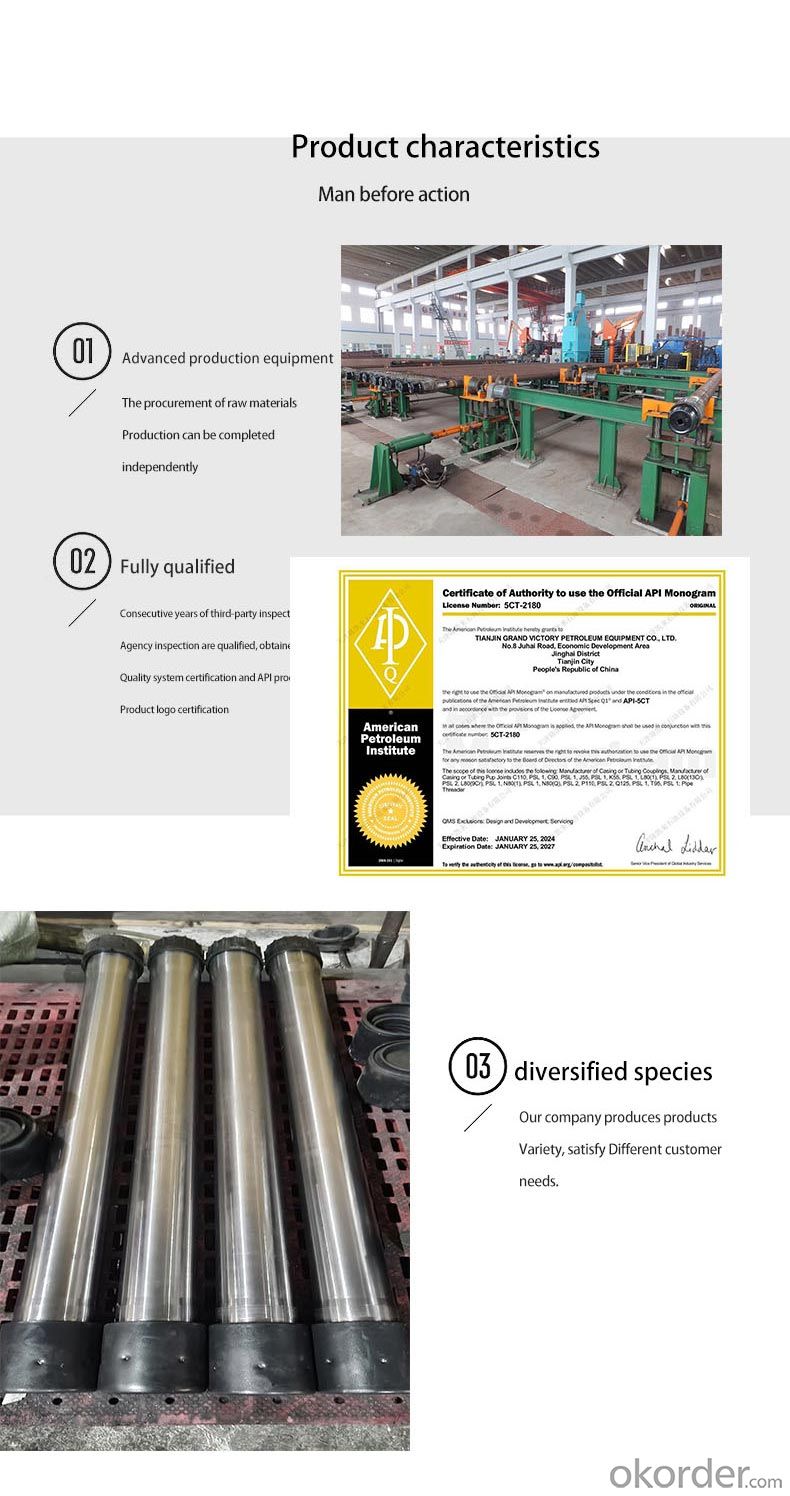
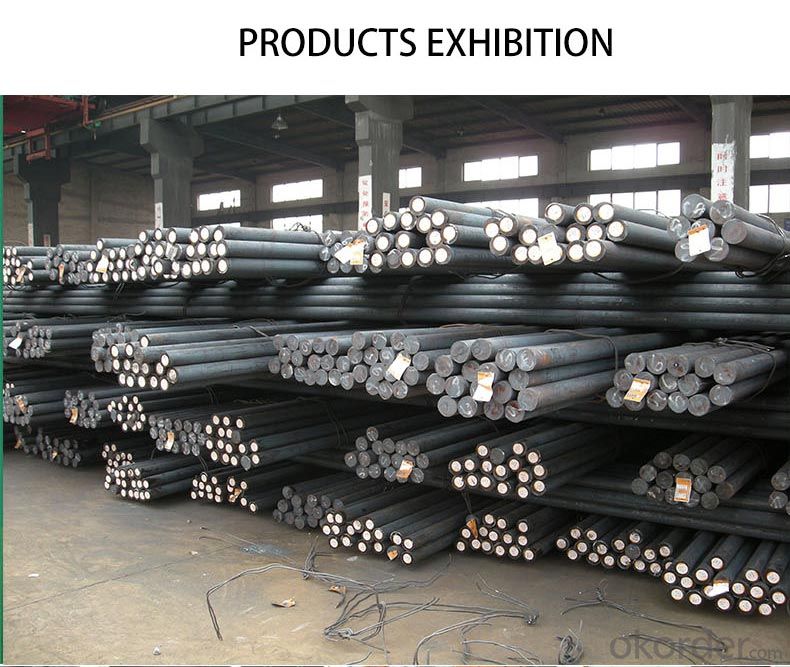
API 5CT J55/N80/P110 OCTG Casing & Tubing Manufacturer Direct
Comprehensive OCTG Solutions for Every Well Profile
As an API-licensed manufacturer, we eliminate intermediaries to deliver J55/N80/P110 casing and tubing with 15% cost savings. Our vertically integrated production process ensures full traceability from steel billet to finished product.
Technical Specifications
Material Science:
J55: 0.45% Mn, 0.25% C composition for shallow wells (≤8,000ft TVD)
N80: Quenched & tempered microstructure withstands 12,000psi collapse pressure
P110: 110ksi SMYS with Charpy V-notch impact ≥45J at -20°C
Threading Technology:
CNC-machined API LTC/BTC threads with ±0.003" pitch diameter tolerance
Optional VAM TOP connections for HPHT wells
Quality Assurance:
100% ultrasonic testing (UT) for laminations
Hydrostatic tested to 80% of yield strength
Applications
J55: Water injection wells, surface casing
N80: Intermediate casing in sour gas fields
P110: Production casing in 15,000psi reservoirs
Case Study
A Permian Basin operator reduced casing costs by 18% using our direct-shipment P110 casing for 35 horizontal wells, achieving 95% torque-turn compliance during running
- Q: What is the role of steel pipes in the construction of stadiums?
- Steel pipes play a crucial role in the construction of stadiums as they are used for various purposes such as structural support, drainage systems, and the distribution of utilities like water and electricity. These pipes provide a sturdy and durable framework, allowing for the construction of large and complex structures. They also facilitate efficient and reliable management of essential services, ensuring the smooth operation of stadiums during events.
- Q: How do steel pipes handle extreme temperatures?
- Steel pipes are highly durable and can handle extreme temperatures due to their inherent strength and heat resistance. They have a high melting point, allowing them to withstand both very high and very low temperatures without compromising their structural integrity. Additionally, steel pipes have excellent thermal conductivity, which enables them to efficiently transfer heat and prevent damage caused by extreme temperature fluctuations.
- Q: Are steel pipes fire-resistant?
- Yes, steel pipes are fire-resistant. Steel is a non-combustible material, which means it does not burn or contribute to the spread of fire. Steel pipes have high melting points and can withstand extreme temperatures, making them highly resistant to fire. They are commonly used in various applications where fire protection is crucial, such as fire sprinkler systems, fire hydrant systems, and fire-resistant building structures. Additionally, steel pipes are also known for their durability and strength, which further enhances their fire resistance capabilities.
- Q: What are the lengths of scaffold steel tubes?
- Scaffolding steel pipe standard length is 6 meters, for easy use, respectively, 6 meters, 3 meters, 2 meters, 1.5 meters, 1 meters, etc., if there is a special length, you need to intercept.
- Q: Are steel pipes suitable for structural applications?
- Indeed, steel pipes prove to be appropriate for structural applications. Renowned for their strength, durability, and versatility, steel pipes emerge as an ideal choice for diverse structural purposes. They can be utilized in constructions, bridges, stadiums, and other edifices to provide essential support and stability. Steel pipes exhibit remarkable tensile strength, enabling them to withstand substantial burdens and resist deformation when subjected to pressure. Moreover, their resistance to corrosion renders them dependable for structural applications, even in severe environments. The utilization of steel pipes in structural applications is further amplified by their cost-effectiveness and ease of installation. In summary, owing to their strength, durability, versatility, and cost-effectiveness, steel pipes remain a favored option within the construction industry.
- Q: Can steel pipes be used for natural gas processing plants?
- Yes, steel pipes can be used for natural gas processing plants. Steel pipes are commonly used in the oil and gas industry due to their high strength, durability, and resistance to corrosion. They can safely transport natural gas and are capable of withstanding the high pressure and temperature conditions typically found in processing plants.
- Q: How are steel pipes used in the construction of water supply systems?
- Steel pipes are commonly used in the construction of water supply systems due to their durability and strength. They are often used to transport water from the source to treatment plants, as well as for distribution to homes and businesses. Steel pipes are resistant to corrosion, which ensures the quality of the water and the longevity of the system. Additionally, their high pressure-bearing capacity makes them suitable for water supply networks that require efficient and reliable transportation of water.
- Q: What is the difference between steel pipe and concrete pipe?
- Steel pipe and concrete pipe are both commonly used for various applications, but they differ significantly in their material composition and properties. Firstly, the main difference lies in the materials used to manufacture these pipes. Steel pipes are made from steel, which is an alloy of iron and carbon. On the other hand, concrete pipes are made from a mixture of cement, aggregate (such as sand or gravel), and water. Secondly, steel pipes are known for their strength and durability. They can withstand high pressure, making them suitable for applications that require transporting fluids or gases under high pressure. Steel pipes also have a high resistance to corrosion, which is advantageous in environments where the pipe is exposed to moisture or chemicals. In contrast, concrete pipes are not as strong as steel pipes and are more prone to cracking or damage under high pressure. However, they are still capable of handling moderate pressure loads and are often used for drainage systems or sewage applications. Another significant difference is the installation process. Steel pipes are typically joined together using welding techniques, such as butt welding or socket welding. This creates a seamless and strong connection between the pipes. On the other hand, concrete pipes are often installed using rubber or gasketed joints, which are easier to assemble and disassemble. Cost is another factor where steel and concrete pipes differ. Steel pipes tend to be more expensive due to the higher cost of steel as a raw material and the additional labor required for welding and fabrication. Concrete pipes, on the other hand, are generally more cost-effective as the materials used in their production are more readily available and the installation process is simpler. In summary, the main differences between steel pipes and concrete pipes lie in their material composition, strength, resistance to corrosion, installation process, and cost. Steel pipes offer superior strength and durability, making them suitable for high-pressure applications and environments prone to corrosion. Concrete pipes, while not as strong, are cost-effective and commonly used for drainage systems or sewage applications.
- Q: What is the maximum temperature that steel pipes can handle?
- The maximum temperature that steel pipes can handle varies depending on the specific grade and type of steel used. However, in general, steel pipes can withstand high temperatures ranging from 750 to 1200 degrees Celsius (1382 to 2192 degrees Fahrenheit).
- Q: What are the different types of steel pipe nipples?
- There are various types of steel pipe nipples, including standard, close, barrel, hexagonal, and welding nipple. Each type serves a specific purpose and has unique characteristics.
Send your message to us
Hydraulic Fracturing 7" Heavy Wall Casing Thread Protectors OEM
- Loading Port:
- Tianjin
- Payment Terms:
- TT OR LC
- Min Order Qty:
- 1 m.t.
- Supply Capability:
- 1400 m.t./month
OKorder Service Pledge
OKorder Financial Service
Similar products
Hot products
Related keywords
